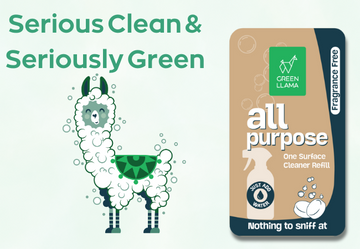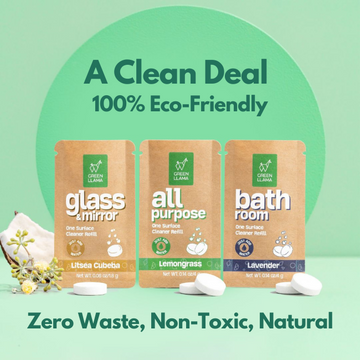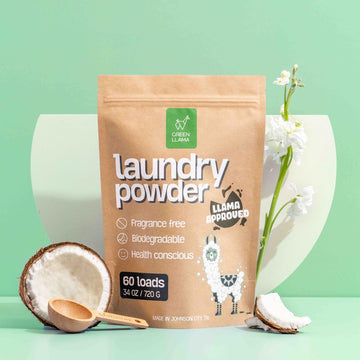We’ve given a lot of thought and effort to develop refills that are practical and environmentally conscious. We dedicated a lot of time and research to this. One of our options was a soluble packaging material called Poly-Vinyl Alcohol (PVA).
At this point I’ll tell you that I’m a neuroscientist, trained in what sometimes seems like the dark arts of evidence based knowledge. And no, I don’t mean at Hogwarts. I did my doctorate at the University of Bristol, England. I tell you this simply to give you an idea of how I approach topics.
Before we chose to use PVA, I did a significant amount of reading on the material, mostly from a biodegradability, biological and toxicological perspective. PVA is a water soluble polymer that dissolves into monomers in the presence of water. I won’t go into the chemistry here, but please ask questions and use the resources at the bottom of the page if you’d like to learn more.
In terms of biodegradability, PVA is broken down by a number of biological organisms including certain bacteria as well as the penicillium genus of fungi (that's the same group that produces the antibiotic, penicillin, which is way cool BTW). The latter fungi is globally widespread. You can learn about this here (1).
As a scientist and, (more importantly) as a human that doesn't want to cause harm to other organisms, I asked the question “Is PVA toxic?”. The following study demonstrates that PVA has very low oral toxicity and is poorly absorbed by the body (2). The same was also found in this study (3).
At a cellular level, stem cells can grow in PVA, which actually increased their survival relative to traditional methods of growing stem cells (4). This last study, incidentally, was published in the journal "Nature", one of the most prestigious scientific journals.
Here is the rating of PVA on the EPA safer choice list, and the score from the Environmental Working Group. Both give it the safest rating they use.
In summary, PVA seems to be a useful biodegradable material with a safe toxicological profile. This material makes up the soluble packaging for our pods.
You can also find more information on our ingredients here.
We also have some other exciting new products that will be coming soon. I hope you will all stick with us as we reveal some of the ideas we have come up with.
1) Kawai et al., 2009. Biochemistry of microbial polyvinyl alcohol degradation, Applied Microbiology and Biotechnology. 84, pages 227–237
2) DeMerlis et al., 2003. Review of the oral toxicity of polyvinyl alcohol (PVA). Food Chem. Toxicol. 41(3):319-26
3) Kelly et al., 2003. Subchronic toxicity study in rats and genotoxicity tests with polyvinyl alcohol. Food Chem Toxicol. 41(5):719-27
4) Wilkinson et al., et al., 2019. Long-term ex vivo haematopoietic-stem-cell expansion allows nonconditioned transplantation. Nature. 571(7763):117-121
Another recent review has a more general overview of PVA (https://www.degruyter.com/document/doi/10.1515/tsd-2020-2326/html).







I love that you guys are concerned about how your products perform as well as how they affect the environment from beginning to end. Good job and thank you.